Debut of the Month: Charlie Cox Makes His Broadway Debut in BETRAYAL
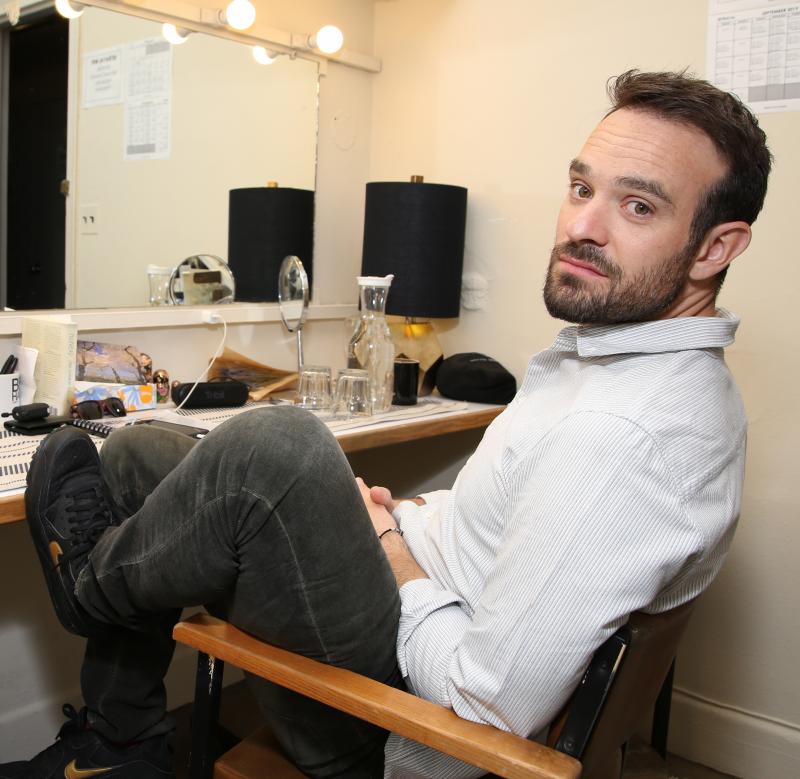 Charlie Cox makes his Broadway debut as "Jerry" in the revival of Harold Pinter's Betrayal. Direct from a hit run in London, the stunning production tells the story of an illicit affair that unfolds in reverse - from the end of a marriage to the first forbidden spark. Today Charlie Cox speaks with BroadwayWorld about making his Broadway debut and the unique challenges that arise when taking on a Pinter classic!
Charlie Cox makes his Broadway debut as "Jerry" in the revival of Harold Pinter's Betrayal. Direct from a hit run in London, the stunning production tells the story of an illicit affair that unfolds in reverse - from the end of a marriage to the first forbidden spark. Today Charlie Cox speaks with BroadwayWorld about making his Broadway debut and the unique challenges that arise when taking on a Pinter classic!
[NOTE: BroadwayWorld's fabulous photographer Walter McBride captures images of the Broadway stars profiled in our monthly column in a special photo shoot. Check out the pics of Charlie Cox throughout the feature!]
Congratulations on the great success of this production! I imagine that there are things about a Pinter work that create unique challenges for an actor, beginning with his signature pauses. How difficult was it to not only learn the dialogue of the play, but also to incorporate these pauses into your performance?
So yes, Harold famously writes in his pauses and silences and they exist I think in all of his plays. And the thing is that one should really adhere to them because really Harold was a poet, he writes poetry as much as he writes prose. And so what you discover is that if you adhere to the pauses and the silences, he will be showing you the musical rhythm of the scene and he's helping you make sense of the scene. And that's really, really fascinating. So it's actually not difficult at all because I think Harold is so brilliant, the pauses make sense. Most of the time you don't have to learn them, they are also your instinct. There were so many times we would discover that the instinct was to pause, and sure enough there it was, written in the script. It was actually quite revealing. So it was not as difficult as you would think. If it was written, it almost always made complete sense when you were rehearsing it.
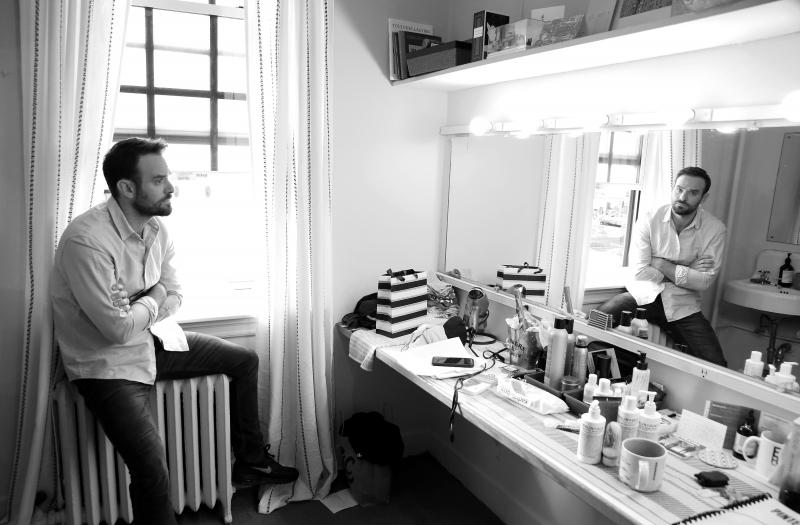
So then you're not actually thinking about it during the performance.
No, certainly not anymore. We did do a few line runs early on in rehearsals where someone would say "pause" and "silence" where they existed just to help us remember where they were and where they weren't. But I really don't remember that being a particularly challenging learning process. It all happened quite organically.
Another challenge with this play is the fact that you are on stage during the entire performance. Even if your character is not technically in the scene, he remains on stage as an observer. Did [Director] Jamie Lloyd give you specific direction for those moments, or was that left up to your own interpretation?
No actually Jamie was quite forensic about that. We talked a lot about the fact that while they're not in the scene, they're alive in spirit. The thinking behind it is, the majority of the scenes take place between two characters, but in each of those scenes, they talk about the third entity, the other one, the one who is not present. And the idea being is that the two characters in the scene, whether it be Jerry and Emma, Robert and Jerry, Robert and Emma, these characters are in some ways haunted by the presence of the other character. And that's very prominent towards the end of the play, in the scenes with my character and Zawe's character, where the guilt is mounting and they talk about Robert and they almost see him in their mind's eye. And of course from an audience point of view he is there, looking at them. It's almost like a ghost - you know, like they're being haunted. And that was Jamie Lloyd, our director's idea, and I think it was a brilliant one. To my knowledge this play hasn't been done that way before but I heard a lot of people say that they can't imagine it being done any other way now.
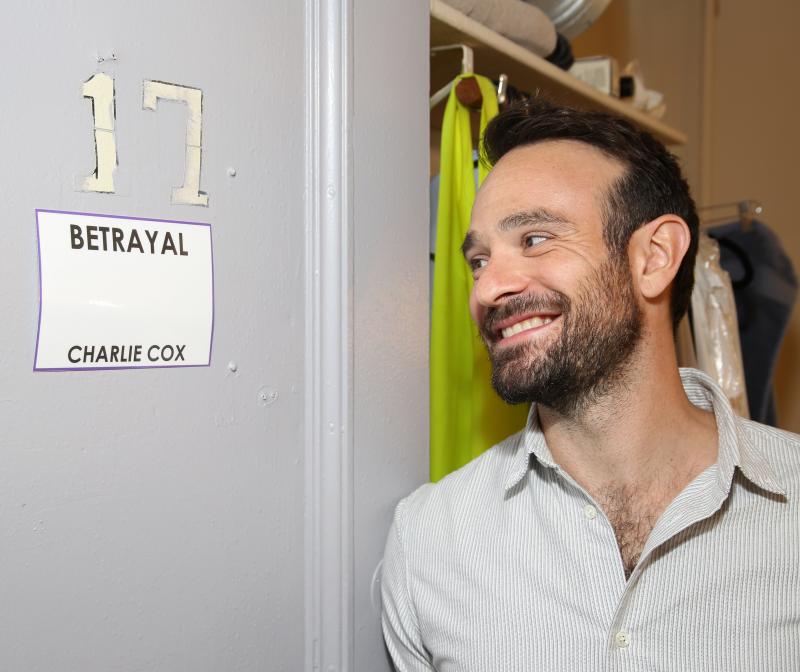 The other challenge of course is, Pinter's characters tend to drink a lot of alcohol during the play and of course there's no opportunity to relieve oneself during the course of the show. So while most of my day revolves around making sure that I'm hydrated, after 4 pm, I make sure to not take any liquids in!
The other challenge of course is, Pinter's characters tend to drink a lot of alcohol during the play and of course there's no opportunity to relieve oneself during the course of the show. So while most of my day revolves around making sure that I'm hydrated, after 4 pm, I make sure to not take any liquids in!
Well that's one challenge that didn't occur to me! I wanted to talk about Jerry's journey in this story which, unlike a typical play, occurs in reverse order. What unique challenges does that create for you as an actor?
That's an interesting question actually. There's a couple of things that spring to mind. The first one is that I feel that the Jerry we meet at the beginning of the play, which is of course the end of the story, I don't think he would ever behave the way the Jerry at the beginning of the story behaves. Meaning that I think we should first meet a man as the play begins who, from the experience that we are about to witness going backwards in time, now has a sadness about him, now has a world-weariness about him, there is loss of innocence, there is a sense that life has kind of humbled him a little bit and the dreams and the hopes and the aspirations that he had when he was younger have slightly been crushed. And while he still puts on a brave face and he has great charisma and is enjoyable to be around, he has come from a place of such romanticism and greatness and excitement. So from an acting point of view, I want Jerry at the end of the play, the beginning of this story, to feel more youthful, to appear to have a great sense of reckless excitement and romanticism. And so when he declares his undying love to Emma, hopefully it shouldn't feel too cynical and too duplicitous, although of course that is the nature of it. It also comes from an almost child-like experience of great profound love, and of course that's what Pinter does brilliantly; he stipulates that Jerry is drunk so it's only with the added help of alcohol lubrication that allows him to say what he says, which is what sparks off this entire chain of events. So one of the challenges during the course of the ninety minutes is just to slowly appear or seem to grow more youthful, more energetic as we go back in time. And as you said, since you can't leave the stage, you can't achieve that with the help of makeup or anything like that.
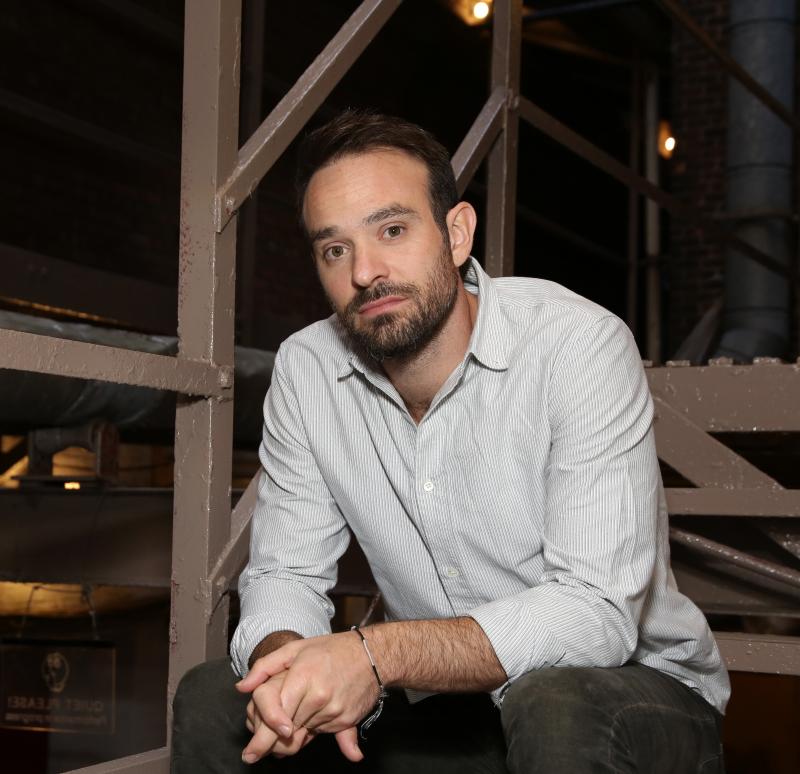
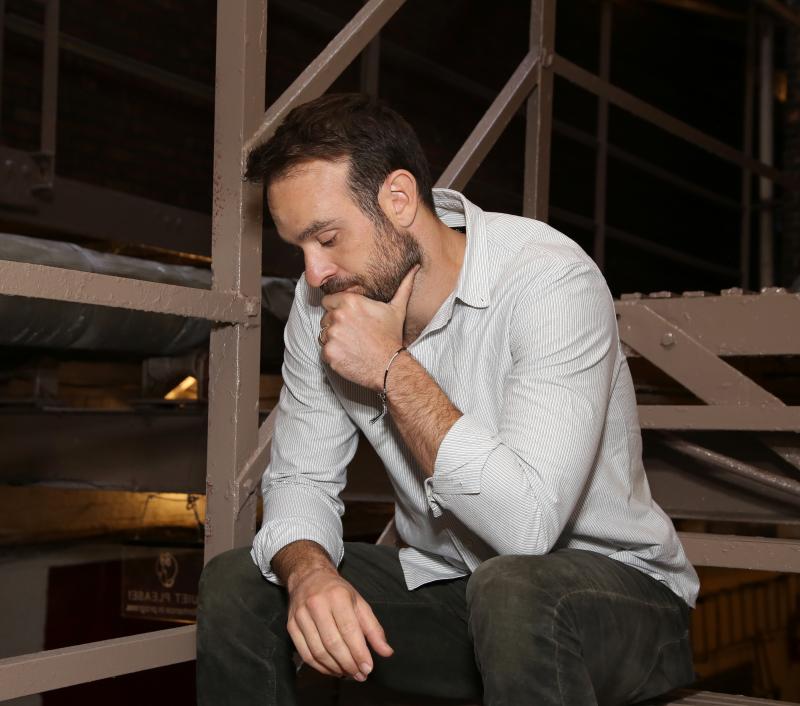
Do you think people view Jerry as the villain of the story?
You know, when I read the play for the first time, I remember thinking the great challenge for my character and for this play to work, is that Jerry has to be likable. If any one of the three of us are considered "the baddie", if any one of the three characters kind of becomes the one who's to blame, then I don't think the play works. And again what Harold does brilliantly is, he makes them all flawed. So during the course of the play you learn that all three of them have their problems and their faults. And I think the character with whom you kind of sympathize with shifts throughout the play. First you meet this couple who are in love and they have this something special and obviously there's a nostalgia and a sadness and they're meeting up at the end of an affair. And then you realize that actually the affair was with the guy's best friend and this woman's husband and you think, 'well that's not very nice!' And then you meet Robert, who is of course the victim of this betrayal, but then you learn that he has potentially been hitting his wife and so your sympathy shifts once again. And ultimately what you come to learn is that they are three flawed characters, all three love each other very much, and they've misplaced the experience of this love which has led to great pain, and ultimately to the separation of all three of them.
So my hope is that Jerry is not seen as the villain. What I tried to do with Jerry is make him as sympathetic and as likable as possible. And I believe the way you do that is, while you can't change what he does and what he says, you must make the audience believe that he does love Emma, but also believe that he loves Robert as well, and that he is as distraught with the ruin of his friendship as he is from the ruin of the affair.
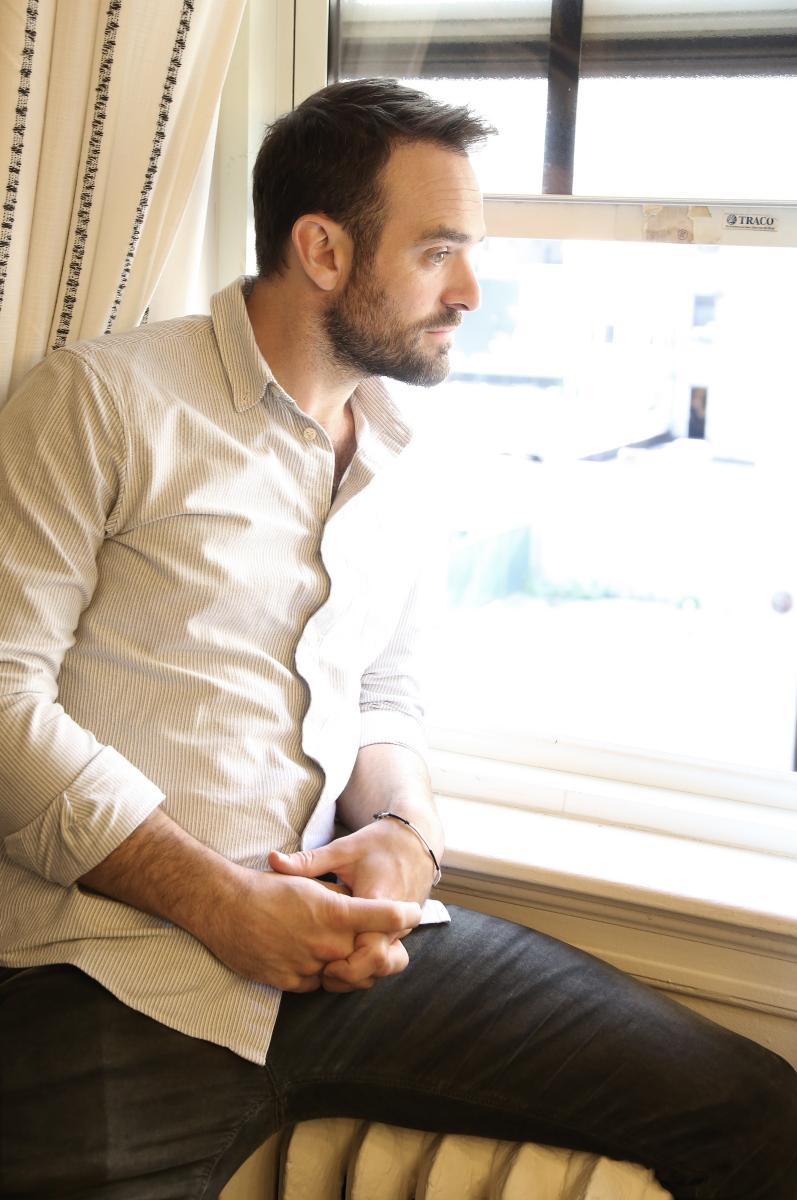 And along those lines, there is such great chemistry on stage among you and Tom and Zawe. Was that something that was there from the very beginning?
And along those lines, there is such great chemistry on stage among you and Tom and Zawe. Was that something that was there from the very beginning?
Well I knew Tom a little bit, Tom and Zawe knew each other a little bit, me and Zawe did not know each other, but yes, it's a combination of Jamie being clever and kind of really bringing us together. From day one we got very, very lucky. And a lot of credit goes to Tom as well who has kind of insisted, in a loving way, that we warm up together, that we behave as a unit when in the theater. So we regularly go out to dinner, we regularly chat, we're all in a WhatsApp Group, we warm up everyday together on the stage as a threesome. And I have never done that before and I found it to be immensely helpful. We've all become very close, and we even have a bit of a dance we do before the show sometimes to get us all going. And I have to say this, I feel very, very lucky because I would not like to do this play if there was some bad energy between any of the three of us, I think it would be really uncomfortable.
Do you find that New York audiences are reacting any differently to the play than the London audiences?
I think they are slightly more lively actually, which was surprising. I had wondered if some of the humor was very English, so much so that it might be lost on New York audiences, because Harold Pinter and the characters are so, you know... English. But no I have not found that to be the case at all. We've found that the audiences are very lively and enjoy it and laugh and cry in all the right places. I do think what has helped with that is the amount of international television and movies. You know everyone in America has seen Downton Abbey, so everyone is very familiar with Englishness and all that, so I do think that helps.
The play was written in 1978. Why do you think the story still seems so relevant in today's times?
I think in the same way when you go through a break-up you suddenly become excruciatingly aware that every movie and every song seems to have been written about lost love, found love, it's in everyone's lives. Everyone has had an experience of loving someone deeply and those first few weeks and months, and sometimes the heartbreak and reconnection, and it's such a powerful emotion. When we were still in the rehearsal room I remember talking about how we have to remember that when you feel that kind of love you often behave in a way that resembles madness, craziness, it really drives people to lunacy. And this is a play about love. It's called 'Betrayal' because it's about the consequences of love when one's intentions are clouded by other things. But it could just as easily been called 'Love' in my mind.
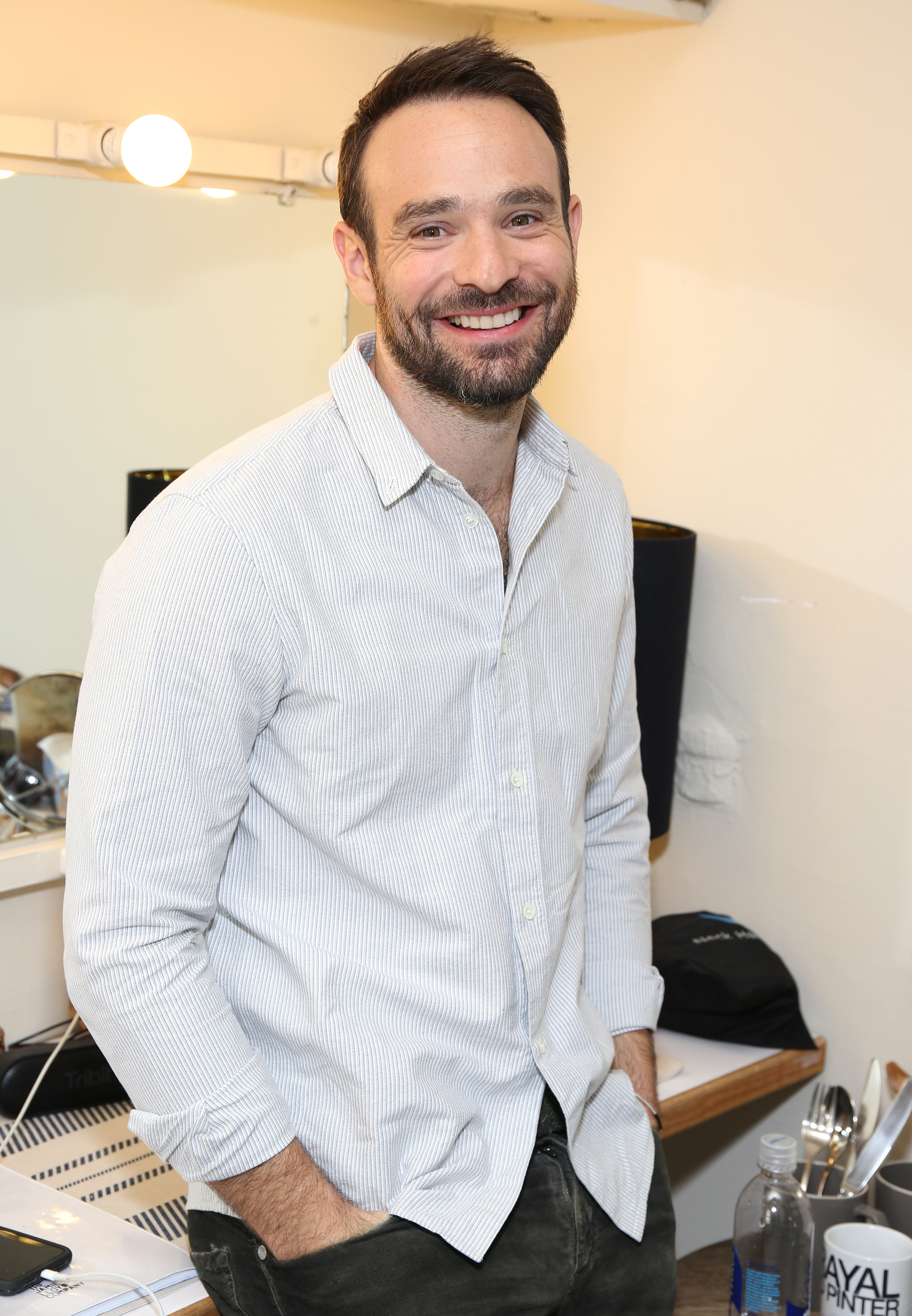 It's so unique that the entire cast is making their Broadway debut in this production. What has that experience been like?
It's so unique that the entire cast is making their Broadway debut in this production. What has that experience been like?
You know funny enough it kind of took the individuality out of it, which I think is a great thing. It made us feel like we are Broadway debuting. And you know the producers and the director, it's their Broadway debut as well. And it's the debut for Eddie Arnold, who is the wonderful actor who plays the waiter and he is fabulous. You know we always joke that it's so frustrating that he's on stage for such a short time and yet he gets the biggest laughs of the night! So he has obviously become as much a part of the family as anyone, so that's been fantastic. So yes, it feels like we're all here, kind of like Brits on Broadway, very honored to be here. I feel very, very welcomed and everyone's just been so kind and generous. And I just feel like I'm living the dream really, just too lucky for words.
So it sounds like you'd be happy to return one day in the near future.
Oh my gosh, yes - one hundred percent!
BroadwayWorld congratulates Charlie Cox on his Broadway debut in Betrayal. Cox was the lead in Netflix/Marvel series "Daredevil" and was most recently seen in the film "King of Thieves." In 2014 the actor starred opposite Eddie Redmayne and Felicity Jones in Working Title's "The Theory of Everything." He also portrayed the Irish enforcer Owen Sleater in the HBO series "Boardwalk Empire." In 2016, Cox starred in Manhattan Theatre Club's production of Nick Payne's play INCOGNITO, for which he was nominated for a Lucille Lortel Award.
Videos

